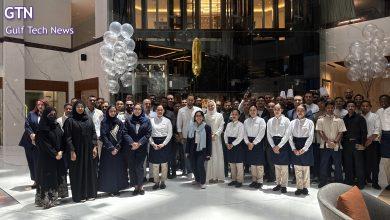An Unforgettable Summer Awaits “For All the Travellers in You” with Accor’s picturesque Red Sea resorts

MEMBERS OF ALL CAN ENJOY AN EXCLUSIVE 25% OFF STAYS THIS SUMMER, INCLUDING BREAKFAST, IN PARTICIPATING HOTELS ACROSS EGYPT
Inviting travellers to enjoy a sun-soaked holiday in Egypt this summer, ALL, the award-winning booking platform and loyalty programme by Accor, has announced its exclusive Summer Holiday Offer “For All the Travellers in You”.
The offer calls on travellers to explore the group’s wide range of properties across the diverse country, including its premium beach escapes in the globally renowned Red Sea resort towns. Members of ALL can enjoy up to 25% off stays with breakfast included at participating hotels, opening a world of experiences to be shared with loved ones this season.
ALL members can book the offer on ALL.com or via the ALL mobile application until 28th September for stays until 30th September 2024 – offering a whole summer of exploration across Accor’s participating Egypt portfolio.
The enticing deal will delight coastal escapists looking for rest and relaxation, with properties in Egypt’s popular Red Sea resort towns, including Sharm El Sheikh, Marsa Alam, El Quseir and El Gouna. Members of ALL – can choose from award-winning brands like Novotel and Mövenpick.
The featured resorts appeal to all kinds of getaways, from action-packed family escapes to luxurious couples’ adventures and getaways with friends, promising the perfect summer vacation.

MOVENPICK RESORT & SPA EL GOUNA
For members seeking a sun-soaked beach escape without travelling far, Mövenpick Resort & Spa El Gouna occupies a striking peninsula position near the charming modern resort town and bustling city of Hurghada.
Offering spectacular vistas of the Red Sea with tranquil lagoons, lush gardens and exclusive beach access, guests can enjoy colourful coral reefs, watersports, wellness experiences and the resort’s extensive facilities. The five-star resort also offers treats exclusive to Mövenpick such as the renowned Chocolate Hour.
Located just 30 minutes from Hurghada International Airport, it is the perfect option for a fuss-free family or impromptu summer escape.

NOVOTEL MARSA ALAM BEACH RESORT
Lovers of sea, sand and sun will delight at Novotel Marsa Alam Beach Resort, a memorable hideaway nestled on Egypt’s stunning Red Sea coast.
The ultimate setting for relaxation, the resort boasts impressive amenities including four pristine swimming pools, offering views of the coastline, palm-strewn gardens and a private golden beach for swimming and lounging.
Offering world-class dining, with options including an all-day restaurant, Mediterranean offering and casual beachfront grill – with three bars and 24-hour room service ensuring guests are well taken care of.
Cementing it as the ideal Egyptian beach escape, bright, modern and elegantly appointed rooms and suites offer breathtaking views over the Red Sea.

NOVOTEL SHARM EL SHEIKH
Located in the picturesque Nama Bay, in one of Egypt’s most exclusive and well-known beach resorts, just 10km from the airport, Novotel Sharm El Sheikh is the idyllic family or couples summer retreat.
Set in verdant tropical gardens with a private beach, the resort offers panoramic vistas of the Red Sea and delights guests with five heated swimming pools, a kids club, three restaurants serving regional and international cuisine and more.
Split into two whitewashed wings, the ‘Beach Wing’, backing onto white sands, and the ‘Palm Wing’, surrounded by palms, it offers spacious rooms sleeping up to four guests. The beach is primed for sailing, windsurfing, diving and boating and the spa offers massages and a hammam.

MOVENPICK RESORT EL QUSEIR
Nestled between sandy mountains and the azure waters of the Red Sea, Mövenpick Resort El Quseir is a peaceful beach resort abundant in wildlife. Designed in a traditional Nubian style, 250 rooms and suites are housed in clusters of stone bungalows with high domed ceilings and authentic décor.
From the rooms and suites, it’s a short walk to the private sandy beach, leading onto a stunning house reef teeming with colourful coral and marine life, one of the area’s favourite snorkelling and diving spots.
Guests will delight in activities like quad biking, mountain tours, and horseback riding on top of watersports, and they will take in the resort’s stunning surroundings. The five-star resort also offers a host of dining, from al fresco Italian and fine dining seafood, to the sumptuous Orangerie buffet.
Alongside enjoying exclusive rates and offers, members of ALL – Accor Live Limitless can earn reward points on every stay, as well as earning points in restaurants, bars, and other outlets. Points can be used to book nights at participating Accor hotels, be transferred to use with Accor’s partners worldwide, or to book truly unforgettable moments with Limitless Experiences in entertainment, sports, culture, shopping, travel, and more.
For something further afield, ALL’s exclusive summer offers is also available across the group’s wide range of properties in the Middle East, Africa, Türkiye and Asia Pacific regions.





